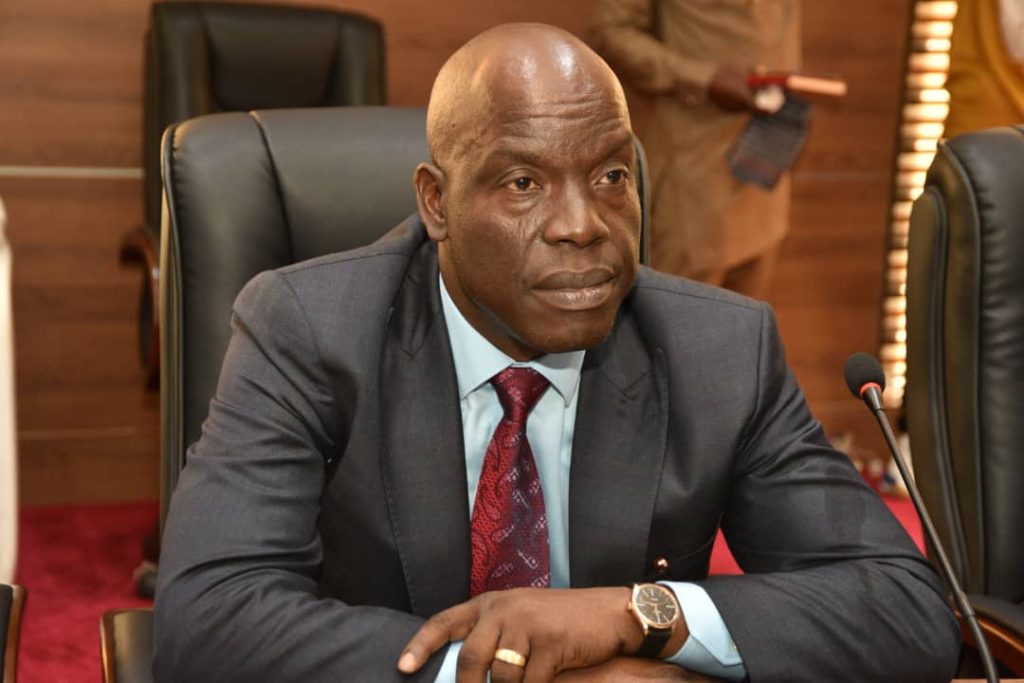
Operating capacity is now condition for divestment closure ___NUPRC
Sopuruchi Onwuka
Parties in the bulk portfolio divestments in the Nigerian upstream petroleum industry must demonstrate capacity to add value to the operated assets as the key condition for the transaction to secure regulatory approval.

According to the Commission Chief Executive (CCE) of the Nigerian Upstream Petroleum Regulatory Commission (NUPRC), Engr Gbenga Komolafe, capacity to add value to acquired assets forms the key assessment for consideration of all divestment transactions seeking ministerial approval.
The Commission, he pointed out, is implementing the Upstream Asset Divestment Framework to guide the seamless, non-disruptive exit of divesting entities and promote sustainable operations for the acquiring parties, all in overriding national interest.
Komolafe’s presentations were delivered by the Executive Commissioner in charge of Development and Production, Mr. Enorense Amadasu, at the ongoing Nigerian Annual International Conference and Exhibition (NAICE) hosted in Lagos by the Nigerian Council of the Society of Petroleum Engineers (SPE).
He declared that capacity has become critical in the divestment programme because of the role of the new players in meeting prime national aspirations for the industry.
He said the NUPRC has therefore wound its seven conditions for divestment approval on the capacity of the new player to not afford acquisition of the assets but also the deep pocket to deploy further investments in growing reserves and production.
The second condition, according to him, is the technical capacity of the new player to advance credible work programmes on the acquired assets and ensure that the right set of skills and equipment are deployed generating and optimizing value from the resources.
Third criterion, according to Komolafe, is the willingness and actual delivery of player’s obligation to surrender data acquired in the course of oilfield activities to the National Data Repository (NDR). Data repatriation, he said, would make it easier for pan-industry utilization in the immediate to long term.
The next, he said, is the vacation of all legal encumbrances on the divested assets. He explained that government would not approve sale of assets that are already suffering legal or all forms of disputes and arbitration. He said that assets on divestment offer must have been cleared of all existing and impending litigations and disputes.
The CCE noted that existing operators that are recovering their investments from the divested assets must also take responsibility for eventual decommissioning of the oilfields and associated environmental remediation at the end of field life. Thus, the exiting players must deposit agreed decommissioning fund with government before walking away with proceeds of the transaction.
He also pointed at companies and assets with lingering labour issues and disputes, stressing that such encumbrances must be addressed by the fleeing company before approaching the government to clear investment recovery transactions.
“All these issues must be dimensioned in the divestment structure,” Komolafe stated in presentations delivered on his behalf.
According to the regulator, capable indigenous players taking over the nation’s onshore, swamp and shallow water oil and gas industry operations from traditional international oil companies have indicated strong business case for full chain integration involving midstream and downstream operations.
“The outlook of the Nigerian oil and gas industry is evolving, particularly in the context of IOC divestments. These changes present both challenges and opportunities,” Komolafe noted.
He said that evolution of midstream and downstream segments of the domestic petroleum industry holds strong promise to transform the country from rent seeking resource owner to an industrialized economy.
The value proposition advanced by companies like Seplat, Aradel, Waltersmith and Oida Energy has laid case for new regulations that commit producers to domestic crude oil supply and domestic gas supply obligations respectively.
“We welcome with keen anticipation the significant opportunities that divestment affords indigenous players who we have seen grow in leaps and bounds within the last two decades. We see greater prospects for robust development across the value chain from Indigenous operators, some of which have demonstrated their keenness for vertical integration and in-country value addition compared to some export-centric major operators.
“The future for integrated upstream, midstream, and downstream development is therefore brighter for Nigeria. I beckon on all investing parties to seize this opportunity for greater value addition for shared prosperity,” he added.
Government’s insistence on the capacity of new-fangled indigenous players as condition for divestment deal approval, Komolafe clarified, targets key values for the economy including protection from international market volatility, assurance of domestic energy security and additional investments in midstream and downstream operations as the local market advances strong demand incentives.



